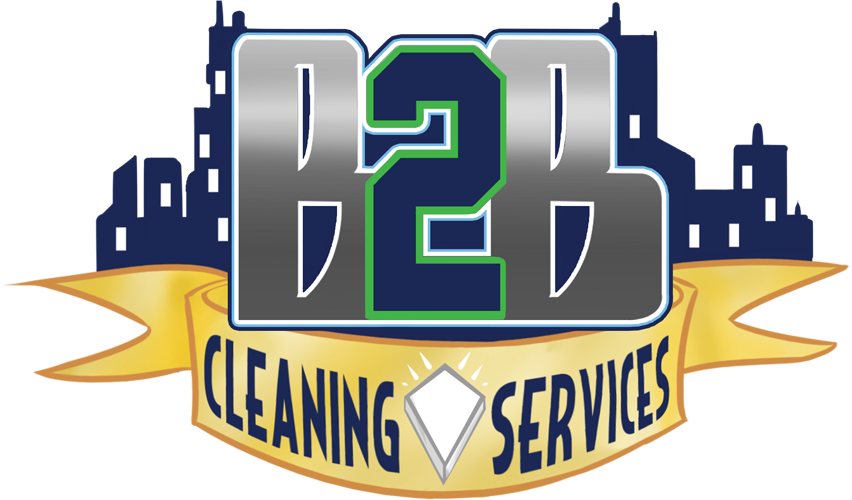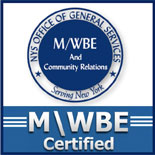
Throughout the year you have been creating management strategies for your business that enhance employee engagement. You’ve focused on building an amazing workplace where employees feel valued and connected to the company and their co-workers. While employers use many different ways to thank employees for their contributions during the year—things that meet their employees’ needs, the company budget, and the cultural “fit” of the business—one of the most popular events is the holiday workplace party.
You do, however, have other options.
Let’s party!
Here are a few reasons for having your party this year:
It’s a company tradition. Some team members may be disappointed if you change your practices. In a survey last year by services company TriNet, when asked how employees felt about the tradition of holiday parties, 28% said they were very excited while 37% said they were somewhat excited.
They build and reinforce your company culture and employment brand. There are tremendous advantages to the year-end holiday party. It’s a great opportunity to network with your employees in a non-work environment, get to know their spouses or significant others, and reconnect with employees you don’t get to see often. The holiday get-together has big benefits for telecommuting and remote workers too, serving to increase their connections to their co-workers and company. The party serves as a reminder to employees that they are part of a team and can have fun together outside of their work routines.
Your competitors are likely having one. The trend for holding company holiday parties tracks with optimism in the economy, and all indicators point to continuing holiday parties this year. With the highly competitive market for quality talent, doing all you can to show your employees you appreciate their contributions may help keep the competitors away.
Party planning tips
Pull together a party planning team to generate ideas for making the party fun and relevant for your employees. Take a few precautions to make your events safer and possibly lessen the potential “hidden costs.” There are certain things to remember or address:
It’s employer-sponsored. Always remember that the party is an employer-sponsored event and follow your stated employee policies. Keep in mind that you as the employer may be held responsible for whatever happens at the party and sometimes for events that occur after it.
The alcohol question. Determine up front how you will handle the alcohol question, especially as it relates to where and when you will be holding the party.
If your policies do not permit drinking either on your company’s premises or during work hours and you plan to have the party at the office as a part of the workday, don’t serve alcohol. If you decide that alcohol must be served and your party is off site and after hours, consider taking steps to restrict alcohol consumption.
Here are some ways to manage this:
- Have a cash bar or a short period of time for drinking before the dinner
- Give each employee a certain number of “drink tickets”
- Have a good selection of soft and nonalcoholic drinks available
- Close the bar well before the party ends.
If you don’t want to place any restrictions on drinking, make sure that your bartenders have the authority to “cut off” employees or managers who are intoxicated. Also make sure that your bartenders know that they should check IDs for anyone who looks to be under age 30.
Arrange for designated drivers. Some creative employers offer incentives to employees who volunteer to be designated drivers, or they arrange transportation for intoxicated employees directly by using a transportation service or arranging with local hotels near (or at) the party site to provide discounted rooms for those who are unable to drive home safely.
Consider the food you’re serving. Avoid serving lots of salty, greasy or sweet foods, which tend to make people thirsty. Serve plenty of foods rich in starch and protein, which stay in the stomach longer and slow the absorption of alcohol in the bloodstream.
Employee handbooks. Back to the employee policy issue, because a holiday party is a company-sponsored event, all policies in your employee handbook should remain in force. The rules regarding sexual and racial harassment still apply. That means that racial or sexual jokes, gossiping about office relationships, as well as unwelcome touching of other’s body parts, are not permitted during the holiday party. Harassment at a holiday party is still harassment. Some people who are drinking and feel less inhibited might forget that caveat. And, of course, don’t hang any mistletoe!
Some concerned employers redistribute their company’s sexual harassment policy before the holiday party takes place, emphasizing that all guidelines will apply at the party even though it is off site and after work hours. We recommend the more common-sense approach of reminding your supervisors to set a good example, keep an eye out for employee behavior that needs managing, and not invite co-workers to any informal gathering after the employer’s party that keeps the alcohol flowing.
We also recommend setting a tone of moderation before holiday parties, which will remind employees to behave responsibly. Make sure you investigate all complaints. Failure to respond to a single complaint can lead to greater liability than the alleged misconduct. Don’t dismiss complaints associated with the party without conducting a thorough investigation.
Shea suggests, “Another good thing to do, if you can afford it, is to invite spouses and significant others to the party. They aren’t called ‘better halves’ for nothing—they will frequently be forces for moderation.”
Managing pay issues. Determining how to handle pay issues should be done in advance of the party. For parties held after hours where attendance is strictly voluntary, paying for attendance at the party is not required, unless nonexempt employees are actually working the party, such as helping to set up, work during the event, or staying after to clean up. In that case, the employee would be compensated for all time worked at regular wages, including any eligible overtime.
If the party is mandatory or consequences would result for those not in attendance, nonexempt employees should be paid for the entirety of the party. There is no requirement to pay exempt employees additional compensation for attendance or working at the party. If the party is held during normal work hours, all employees would receive regular compensation while attending.
Reviewing liability insurance. Consider reviewing your liability policies before the holiday party. Employers often ask us if a party-related injury might be considered compensable under workers compensation. The best answer for customers is “always consult with your insurance broker, who is a specialist in this area and also is your key partner in understanding your policy’s alcohol-related exclusions.”
Here are a few things you can do to make the holiday party look less “work-related”:
- Don’t require employees to attend as a condition of employment
- Schedule the party on a week night after normal working hours (employees are less likely to overindulge)
- Don’t take attendance at the party
- Hold the party at an off-site location
- Make the party a family affair by including spouses, invited guests and children.
Let’s do something different
This may be the year to do something different. A trend that is becoming more popular is hosting an event at another time of the year that is less hectic for employees who are dealing with their own holiday and New Year celebrations. Here are some other ideas to convey your appreciation for your team:
- Party for a different holiday. Pick another holiday to celebrate so that you are not competing for employee time and attention during the busy December holidays. How about a party around Valentine’s Day to “show the love”? Or pick a date that is special in the company’s history, such as the date the company was founded or launched its first product or sale.
- New Year kick-off event. Another option is to plan the event in early January as a kick-off for the New Year with fun events surrounding business planning. If the budget allows, bring in your remote workers for the event so that they can physically participate.
- Community giving day. Invite employees to take a day off to give back to others in your community. This could involve helping a local volunteer organization, such as a food bank, Habitat for Humanity, or homeless shelter, buying and packing supplies and gifts for military members overseas, etc. Once the work is finished, invite employees to an informal meal and let them have the rest of the day off. This can be a true bonding experience for your employees while they are helping others, and these kinds of activities can be done at any time of year. In fact, many volunteer organizations receive much help during the holidays and would appreciate getting help from the community at other times of the year.
- Activities that don’t involve just eating and drinking. Plan an event that is appropriate for your company size and employee interests, such as participating in a performance or sporting event, organizing a scavenger hunt, or hosting your own event unique to your culture.
- Celebrate without the traditional office party. Organize a company “fun committee” to plan events throughout the holidays. The sky is the limit, and a few suggestions include: holiday cookie tastings, potluck lunches, ugly holiday sweater day, holiday card exchange, contributions to favorite employee charities, secret gift (or re-gift) exchange, food and clothing drives, family lunch in the office, or decorated office workspace contests.
- Don’t forget remote employees. Your remote workers want to be part of the fun, even if they participate virtually. The company may be providing food and drinks for employees to enjoy during the small in-office events. Send your remote workers eGift cards for a local food or drink vendor so they feel like they are part of the company fun.
Employee holiday gifts
If you have the holiday tradition in your workplace of giving gifts and/or you do a mystery gift exchange (either serious or gag gifts), here are a few words of common sense and caution:
- Remind employees to keep the company’s anti-harassment policy in mind, avoid religious symbols, and keep the gifts in good taste (especially with gag gifting)
- Remind employees to be aware of the company’s conflict of interest policies or code of ethics when accepting or giving gifts to vendors or customers
- Consider the tax implications of gifts of cash, gift certificates or items of higher value
- When giving gifts, treat employees consistently and without showing preference.
Have fun planning your company holiday celebrations or recognition events to let your employees know how much you value each and every one of them, not just during the December holidays but throughout the year!


